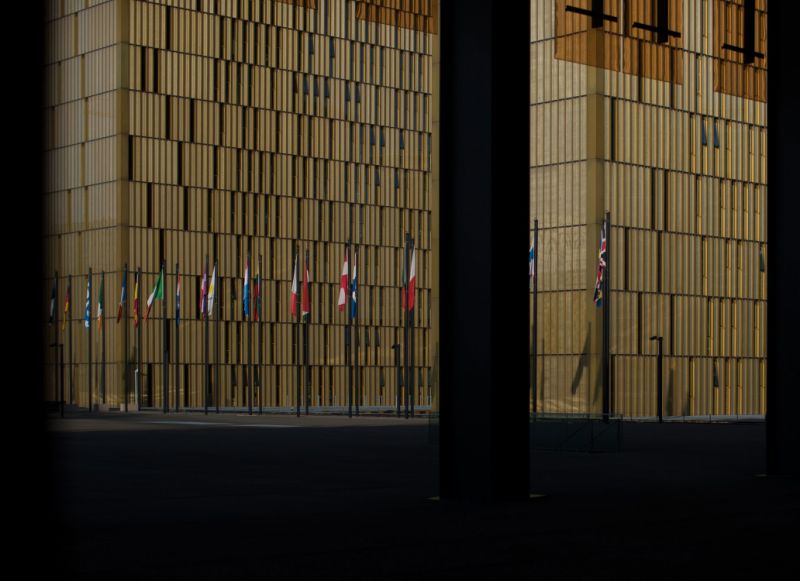
(Bloomberg) — Starbucks Corp. won and a Fiat Chrysler Automobiles NV unit lost court fights over European Union tax orders in conflicting decisions ahead of Apple Inc.’s bid to topple its record 13 billion-euro ($14.3 billion) bill.
The EU General Court in Luxembourg said on Tuesday that the EU failed to show that coffee giant Starbucks was granted an unfair tax deal by the Netherlands. However judges threw out a similar challenge by Fiat over its fiscal arrangements in Luxembourg. The judgments can be appealed to the EU Court of Justice, the bloc’s highest tribunal.
While the amounts at stake — about 30 million euros each for Starbucks and Fiat — aren’t huge, lawyers will pore over the judgments ahead of multiple other appeals as companies, including the iPhone maker, rail against EU Competition chief Margrethe Vestager’s five-year crackdown on allegedly unfair tax deals.
Challenges have been piling up at the EU courts since state-aid investigators started work in 2013 to unearth what they deem to be the most problematic examples of otherwise legal individual tax agreements — or tax rulings — doled out to companies by countries.
Luxembourg’s finance ministry said it would “analyze the judgment” and pointed out that the government “in the past few years has done numerous reforms to find against fiscal fraud and tax evasion.”
The Dutch finance ministry is “glad there is clarity” following the court ruling, deputy finance minister Menno Snel said in an emailed statement. The judgment “means that the tax authorities have not treated Starbucks better or differently than other companies,” he said.
Fiat said in an emailed statement that while it’s disappointed with the ruling and considering its next steps, it’s not material to the group.
Starbucks said in a statement that pays its taxes wherever they are due and that the ruling in its challenge “makes clear” that it “did not receive any special tax treatment from the Netherlands.
The Brussels-based commission didn’t immediately respond to a request for comment.
In the Apple case, the EU said Ireland illegally slashed the iPhone maker’s tax bill, a finding the company and Irish officials don’t accept.
While the facts of the various appeals differ, Tuesday’s decisions “should have a far-reaching impact, both on the other pending cases and going forward,” Howard Liebman, a tax partner at law firm Jones Day in Brussels, said ahead of the judgments.
Any guidance from judges on the European Commission’s use of state aid law could also have an impact on Vestager’s ongoing tax probes, now centering on fiscal deals done by Amazon.com Inc. and Alphabet Inc.
Starbucks and Fiat were targeted on the same day in 2015 by a similar EU order to pay back 30 million euros each over their tax arrangements in the Netherlands and Luxembourg respectively.
Finding itself at the receiving end of most of the EU’s decisions since then, Luxembourg was ordered to recoup 250 million euros from Amazon.com in 2017 and 120 million euros in back taxes from energy utility Engie SA, France’s former natural-gas monopoly, previously known as GDF Suez, last year.
The cases are: T-636/16 – Starbucks and Starbucks Manufacturing Emea v. Commission, T-755/15 – Luxembourg v. Commission, T-759/15 – Fiat Chrysler Finance Europe v. Commission, T-760/15 – Netherlands v. Commission,
(Updates with reactions from fifth paragraph.)
–With assistance from Ruben Munsterman and Tommaso Ebhardt.
To contact the reporter on this story: Stephanie Bodoni in Luxembourg at [email protected]
To contact the editors responsible for this story: Anthony Aarons at [email protected], Peter Chapman, Giles Turner
<p class="canvas-atom canvas-text Mb(1.0em) Mb(0)–sm Mt(0.8em)–sm" type="text" content="For more articles like this, please visit us at bloomberg.com” data-reactid=”37″>For more articles like this, please visit us at bloomberg.com
©2019 Bloomberg L.P.











Add Comment